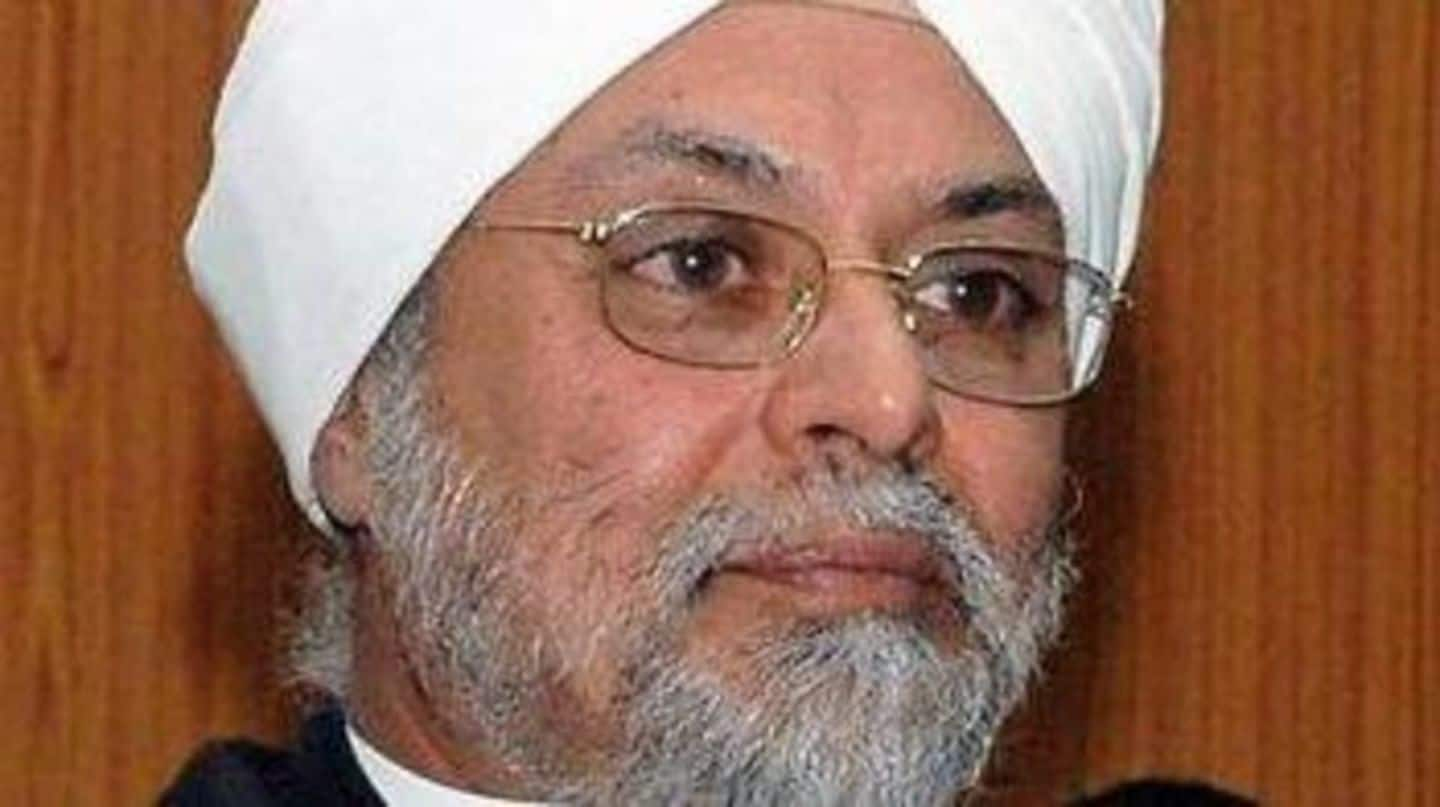
CJI Khehar: What will he be remembered for?
What's the story
Justice JS Khehar, the Chief Justice of India retired yesterday having served his seven-month-plus tenure. Justice Dipak Misra was sworn-in as the new CJI. Khehar was appointed a Supreme Court judge in 2011 and has been a part of many historic judgments. Let's take a look at what he did: the hits and the misses in this CJI's career.
Do you know?
Khehar's bench sent Subrata Roy to jail
Khehar, who was the first Sikh CJI, was responsible for sending Sahara chief Subrata Roy to Tihar jail. Roy had flouted the orders to return money his corporation had received from investors for two financial projects pronounced unconstitutional by SEBI.
2015
Khehar strikes down the NJAC, doesn't bow-down to Centre
Justice Khehar's moment came in 2015 when he struck down the 99th Constitutional Amendment, which authorized the National Judicial Appointments Commission (NJAC). The NJAC was to replace the Supreme Court's "collegium" system, which promoted nepotism. However, he refused to bow down to Centre's Memorandum of Procedure citing that it allowed for Centre's interference in judicial appointments.
Battle against pendancy
Think the judiciary has picked up pace, Khehar to thank
Thanks to Justice Khehar's fight against pending cases, he reduced pending cases by 2000 in SC. Moreover, he listed cases pertaining to the same individuals together and fined heavily for frivolous cases. He also appointed judges to fill the vacancies so that justice could be expedited. He even insisted on hearing matters during vacations to prevent backlog.
23 Aug 2017
Khehar riding Triple talaq high but he didn't favor it
Khehar is retiring and the 'Triple Talaq' judgement will always carry his stamp for being passed during his tenure. However, not many know that Khehar didn't actually want to abolish it. Khehar opined that this practice was "a matter of personal law of Sunni Muslims, belonging to the Hanafi school" and "interference in matters of personal law is clearly beyond judicial examination".
Details
Khehar strikes the gavel and upholds the right to privacy
Another win that will be written to Khehar's name will be the declaration of privacy as a fundamental right by Khehar's bench. However, even this victory remains bittersweet. While the judgement was passed by 9 unanimous judges, Khehar did not write a personal opinion (6 other judges did that). Moreover, he has been critiqued for not picking this imperative case sooner.